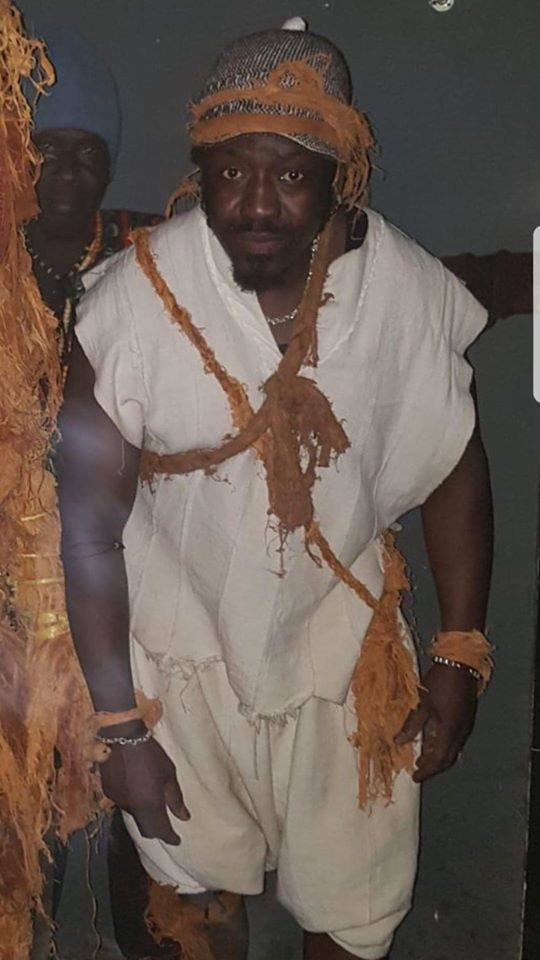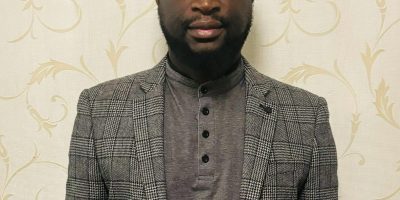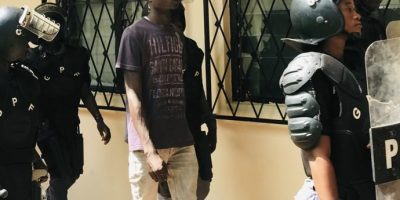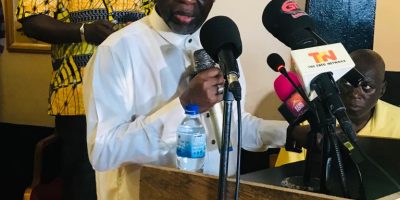
 by Alagi Yorro Jallow
by Alagi Yorro Jallow
Fatoumatta: African leaders need to be more conscious of the role that culture can play, particularly economically and politically. Many Western economies – such as the Caribbean, Britain, France, as well as North America and Latin America – have benefited hugely from the showbusiness and music sector. It generates enormous amounts of revenue and provides significant opportunities for work and employment. Everyone in Africa – whether a politician, musician, or businessman or woman – needs to appreciate the role that culture can play in our development.
Fatoumatta: If I have any early recollection of the Gambia’ renowned Cultural Ambassador as well as a Manding Cultural Activist, Mr. Sulayman Ceesay of Bakoteh Kutejumbulu Cultural troupe in the Gambia with that signature appearance of a dreadlocked bloke with a disarming demeanor that is the classic definition of calmness. His space of cultural activism that dripped with Manding Roots and Culture tunes. He ended up baptizing his ‘Mandingo Culture’ because of his strong passion for Kankurango, and the Manding traditional music he dances and performs absolutely and indisputably the best in the Gambia.


Ambassador Sulayman Ceesay works mainly in The Gambia but also presents much work in Europe, mostly in London and in Scandinavian countries. Sulayman has taken contemporary dance and Manding culture to the next level in Europe. He is important because he has changed perceptions about dancing traditional music, folklore, and culture, particularly in the Gambian Diaspora. Trained in classical Manding cultural heritage, he has found his way of blending the heritage of his country with his cultural activism. He deals with identity and history, fusing Manding culture with the mainstream of art and finding his Gambian forms within the classical form. Sulayman Ceesay’s work draws on traditional Gambian dance, the song, and dance rituals of the Bakary Marong and Butay Jaffuneh (traditional singers) as well as cultural, dancers, and in Gambian forms.
Fatoumatta: I happened to share his cultural interests as a Jarranka– and no smattering of politics, something that he never liked that much. His feeling of Manding culture has been refreshed and inspired. Though his eyes had this glint that betrayed plans to make it big in the future, it never crossed his mind that he would outgrow his present circumstances. How wrong, he moved his Manding cultural activism to a reasonably decent international prominence on the global stage. His passion for culture and his appearance is never shaving his dreadlocks, a passion he engaged into dreadlocks full-throttle and shelved shaving.
Fatoumatta: If there is one grass-to-grace story, one will vouch for Ambassador Sulayman Ceesay, and then this is it. They say never despise humble beginnings and that we can never stop a good man. Cultural Activist Sulayman Ceesay’s Soul will tell us. When he talks about culture in our sub-region, it is impossible to separate arts, dance from music, instruments from costumes, as well as Manding masquerades, the Kankurango. Everything is linked to the communities themselves. One cultural activist Sulayman Ceesay who has developed a passion for promoting his Mandingo cultural heritage go global, who travels the world, presenting his Mandingo culture of traditional Mandingo music, dance, folklore, as well as the Mandingo, masquerade Kankurango. He uses all the elements of art and culture from the West African subregion. Moreover, we are confident that the more people see of Africa’s art and culture, the more they will find the inspiration and joy in it that we have found ever since Sulayman Ceesay showcasing Mandingo culture offline and online.
Fatoumatta: The only thing wrong in Africans, particularly Gambians are failing to see that our borrowed faith is itself heavily imbued with cultural spirituality. The cultural epistemology inherent in our society is one of the reasons it relatively easy for Africans to adopt a religion.
Fatoumatta: As a post-colonial child who inherited confusing cultural and religious identities, we have sifted through much chaff, we have choked on unhealthy doctrine, and we have discovered the wholesome grain of buried African philosophies that have helped restore our mental health. We have also come to the comfortable acceptance that we are children of mixed cultural spiritualities. As Africans, we choose to participate in what makes us a better human being, which gives our life fuller expression, depth, and meaning. We will not argue with those who think their culture and faith are the only authentic culture and faith.
The Gambian:
Then there are the Gambian Africanists who perceive every borrowed holiday as a betrayal of our African and Gambian identity, a sign of just how lost we are. Same Africans and Gambians, including myself, who worship Manchester United, Arsenal, Chelsea, Liverpool, and other denominations of football made in Europe. And there is nothing wrong with being a football fan of a foreign team. It is when we lie to ourselves that there is anything like cultural purism. They ask- Do we ever see those White people celebrating African holidays? Yes, they do.
Fatoumatta: In African communities that still practice their culture and religions, we will find white people who travel annually to participate. While the capitalist world bills these festivals as spectacles of “Afrotourism”, they are authentic religious and cultural events that enshrine unashamed African spirituality. We do not know if Gambians have any of these authentic African cultural and religious festivals, but the Internet should throw us some great examples from across Africa and the Gambia. The Roots Home Coming Festival comes to mind.
Perhaps our pain and discomfort as Africanists come from knowing that our borrowed religious and cultural practices were violently forced on us, and what we react against is not necessarily our practice of those foreign cultures and religiosities, but the fact that we were never given a chance to borrow culture organically. If an identity is forced on us, we will always have a degree of resentment towards it if we are consistently awake to that act of violence. Until we consciously make it our own. Like the growth of the Roots Home Coming Festival.
Fatoumatta: For the Africanist and Gambians anchored by the practice of foreign festivals and cultures, we have to invite us all to help us work out the pain of cultural violation, and then allow us to be healthy and healed humans interacting with fellow humans anywhere we find ourselves in this world.




Ma sha Allah great and thanks for sharing